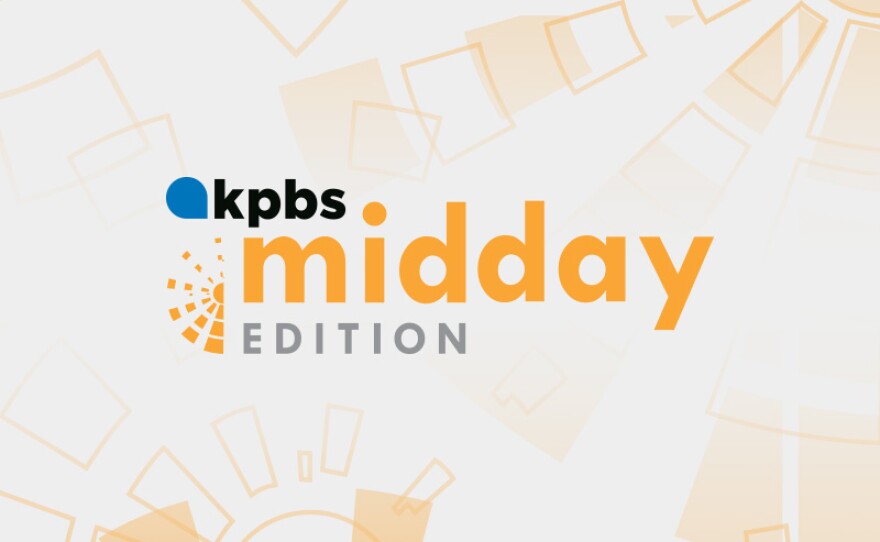Marijuana Culture Has Arrived, But The Science Is Still Catching Up
Speaker 1: 00:00 More people are buying marijuana. Since California legalized its retail sale two years ago, KPBS science and technology reporter Shalina chop mommy says the scientific research to show consumers the risks and benefits of marijuana use is just starting to accelerate. Her story is today's installment of our week long series, high hopes California's pod experiment, bass heavy music thumps through West Hollywood cafe. I'm Thursday night, we'll smoke, fills the air, not from cigarettes. Those are banned inside California restaurants. These vapors are from marijuana because this is the original cannabis cafe, the nation's first eatery where customers can order marijuana products with their meals. Tonight, Ricardo Baca is sitting on an Island overlooking the patio. He's a renowned, independent marijuana journalists. Speaker 2: 00:49 You look around, this is pretty normal. There's people of all ages, all walks of life. It's a pretty Shishi neighborhood. Speaker 1: 00:57 California legalized retail sale of recreational marijuana two years ago. The original cannabis cafe opened in October. Speaker 2: 01:04 I think what this tells us about where we are is that culturally cannabis has finally arrived in the mainstream, Speaker 1: 01:11 but humans have been using marijuana since ancient times to treat health problems like insomnia, anxiety, and pain. Well, we know it can feel good to consume marijuana. There's still not enough science to really know what it does to the human body and brain. That's 50 years after THC was discovered. The molecule and marijuana that gets us high, Speaker 2: 01:30 that showed up signal a wave of an international research. American drug policy prevented research from happening. In most parts of the world, Speaker 1: 01:40 the federal government still classifies marijuana as a schedule. One elicit drug the same category. Heroin is in the label means there's literal federal funding for research into the health benefits of marijuana, but over the last two decades, States like California have stepped up to fill that research gap. Speaker 3: 01:58 We did some of the early studies that showed actually that constituents of marijuana were helpful in controlling certain kinds of chronic hypersensitivity pain that are not well controlled by things like aspirin or Advil. Speaker 1: 02:12 Igor grant is the director of UC San Diego center for medicinal cannabis research. The center began a few years after California became the first state to legalize medical marijuana. Some funding is federal, but the majority is state money and private donations. Researchers have already completed seven cannabis clinical trials with humans and more underway. Some of the other work that we're doing Speaker 3: 02:32 engaged in moving forward are could Canab a dialogue, which is a non psychoactive ingredient in marijuana, a be useful in conditions like autism. Would it be helpful in managing the early symptoms of psychosis? Speaker 1: 02:48 The new research is focused on endocannabinoids. These are natural molecules in the human body that sends signals different cells regulating processes like pain and appetite, and it turns out certain compounds in marijuana work just like those endocannabinoids. But grant says that schedule one federal classification still limits research. Speaker 3: 03:10 People are often saying, well, California has legalized marijuana. You know, why can't we go to one of the dispensary's, buy a bunch of whatever it is and do a clinical study? It's absolutely illegal at the federal level. Speaker 1: 03:24 Grant says there still a lot of questions like could marijuana products damage the liver if they're mixed with other substances? It's not just scientists that want to find out there's a growing appetite among consumers to get [inaudible] Speaker 4: 03:35 some answers. So this is going to be your full indicus screen right here. It's going to be Chris Simpson is a bud tender at dispensary urban leaf in mission Valley. It's going to be a very nice in the code for when you are trying to help with sleep. Speaker 1: 03:49 During my hour long conversation with Simpson, about two dozen customers shuffled into the dispensary. Speaker 4: 03:54 A lot of customers would call us and see, what can I take for Parkinson's? What can I take for restless leg syndrome? Speaker 1: 04:01 Simpson says he's done his research on marijuana and it makes him happy to help customers with their medical needs, but he doesn't like being seen as a doctor. It is a lot of Speaker 4: 04:10 pressure on a public standpoint that we as a whole is what's helping these customers on a daily basis and we're not licensed like your medical doctors are. Speaker 1: 04:20 Simpson says he hopes scientific research can accelerate because he sees the demand not only for recreational, but medical marijuana every day, and he doesn't want his customer's health depending on trial and error. Shalina Celani K PBS news.


